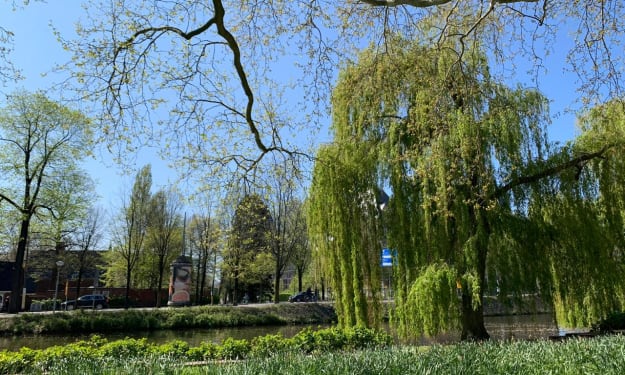A Reflection on Racism
Why reflecting on the ways we have encountered the topic of racism are crucial for being anti-racist.
I cannot say I am writing this piece in a vacuum, because recent events have sparked a movement that should have happened long ago. Still, after hundreds of years of oppression, black lives are unjustly treated as less valuable. This is unacceptable.
Having little in-person contact with others the past few months have me getting more vocal in online platforms. Writing is one of the few acts that have helped me process phenomena of great importance, and by writing and sharing my writing, I am holding myself accountable to my reflections as I learn and unlearn about the racial injustices I do not experience due to my white skin.
I decided to share this piece to contribute to a conversation about the deep reflecting and unlearning we must go through, both as individuals and as a society, to achieve racial equity. The following piece is not meant to make my voice the focus of this conversation at all, but I decided to use my platform productively given my privilege.
The following vignettes show instances in which racism can be pinpointed, but also show how it morphs and dwindles right in front of us. I am very privileged to never have experienced racial discrimination in any form, and these vignettes are only some cases in which I encountered the topic of racism without ever being the victim.
Home
• When I was 10 years old, we were learning about Colombia’s colonial history in Spanish class. We learned about hierarchies within racial organization at the time, where they showed my classroom a pyramid structure with names and their respective faces in each of the structure’s segments. At the top of the pyramid, a white face labeled “Spaniards” showed the social position white European-born groups had in society. At the bottom, the darkest face was labeled “Slaves”, suppressed by all other parts of the pyramid.
That day, when I came home from school, I asked my dad: “what race are we?”. After thinking hard and looking at the floor he said “Mestizos”. I looked at my skin. “But we look white”.
• Two of my father’s siblings were twins. They each married a black Colombian woman at some point of their lives. I heard that my grandfather was dismissive and reluctant of their marriage choices. Jokingly, someone in my family said to us kids of the newest generation, that when considering marriage: “race must be bettered, not destroyed”.
School
• I was in high school and one lunch I joined a group of friends that were commenting on the school’s new promotion video. “There’s a little black kid in pre school and he is so cute!”. We looked around our school yard where no sign of an afro population was found. “No wonder why they made him the star of the video”.
• When we did community service in school, travelling to remote places in Colombia like the Amazon and the Sierra Nevada’s “Lost City”, some of the girls approached cute colored children that greeted us upon arrival. “You’re so cute!! Come take a picture with me” and take the Go Pro out.
• During my exchange experience in South Africa at 15, my host family took me on a City Sightseeing Tour. After various stops, we encountered the ‘Township Tour’ stop was closed for the day. Townships are slum-clustered areas in South Africa, and they have a predominantly black population. “Too bad”, the father said, “it’s something you’d be in shock to see”. It was only when I started university, I found out what the Township Tour experience really was: voluntourism.
University
• New to Canada, I had no idea how big and famous Drake was. I tried to learn some songs as I got acquainted to his music. A friend of mine taught me that just because the n-word was uncensored in the song, it gave us no right to rap it along with him. I never did so again.
• In Tanzania, I read Danielle’s ode to her afro hair. I was amazed at the ritual of afro hair care and the policing forces that made her reject it for a long time, including the racialized standards of beauty in the West. I remembered how my white-skinned cousin whom we used to call “la crespa” [the curly haired] started straightening her hair at age 14, deeming it ugly and “unruly”. Today, she has severe hair damage. I wondered whether if this counted as internalized racism, despite her skin being white.
• In my first year of university, at a Sociology class, we watched a clip (linked in this article) on Jane Elliot’s social experiment at her primary school classroom in 1968 (after Dr. Martin Luther King Jr. was killed). Arbitrarily, Elliot started treating brown-eyed children differently, making them wear blue collars, telling them that they were “slow” and were banned from using playground facilities, among other decrees. By break time, the video showed how children were acting against each other merely by the colour of their eyes. Brown eyes became an insult and something to be ashamed of. The next day, Elliot applied the same policies to blue-eyed children while brown eyed children smiled mischievously, showing how easily can we internalize our worth and our entitlement when a system is for or against us.
After class I found myself crying in my realization of being “too idealistic”. Becoming aware of how easily prejudices can rise and be internalized was shocking for me. I was so privileged in that my white skin had never given me any trouble. I felt guilty about my ignorance to the struggle of others who are oppressed and violented for being “different” in an aspect that the system deemed inferior. Dark skin in a system of white supremacy.
One of my friends consoled me and said, “don’t bash yourself so hard because you cannot feel their pain”. Not only because feeling guilty will never compare to the pain inflicted by racism, but because nobody is meant to feel or experience that pain at all. We cannot hate ourselves for our privilege because this is not productive. Empathy does not consist in inflicting pain on yourself to solidarize with others but is instead a product of reflexivity that we must use to check our privilege. Black lives are more important than white feelings.
There is a lot I am still learning and un-learning about racism. I encourage anyone who reads this piece (or the news) to start reflecting and continue this conversation.
About the Creator
Silvana Martinez
20-year old Colombian living in Canada and the Netherlands. Exploring a writing voice.






Comments
There are no comments for this story
Be the first to respond and start the conversation.